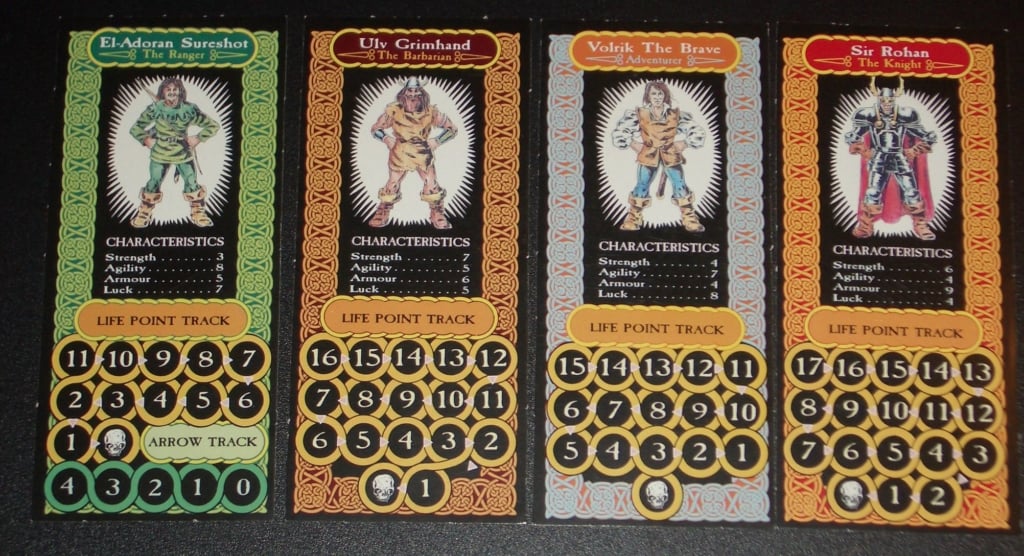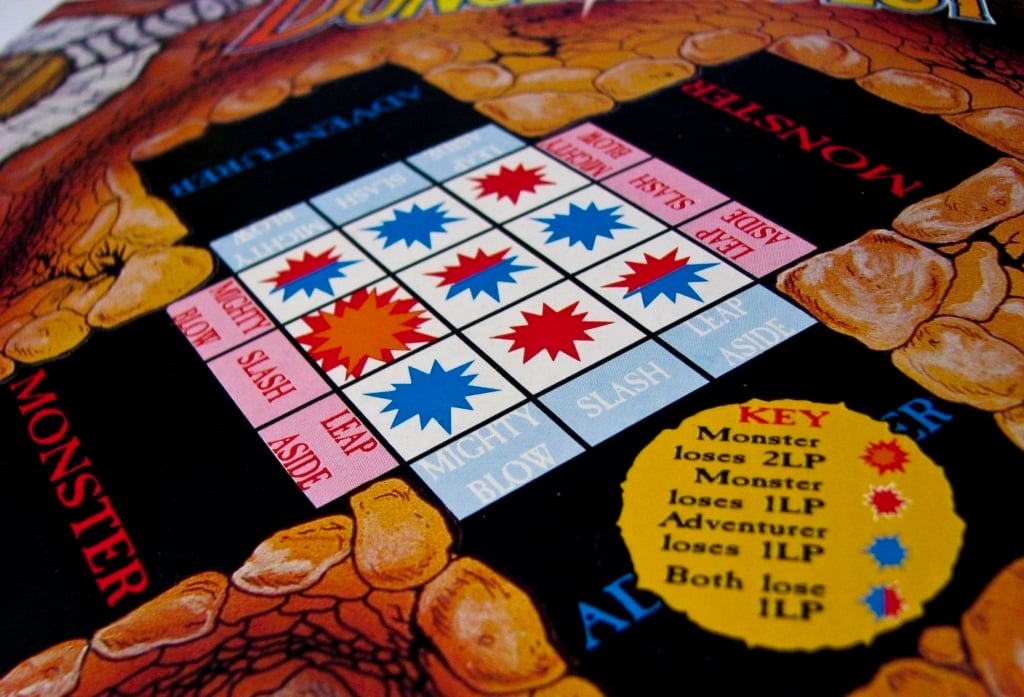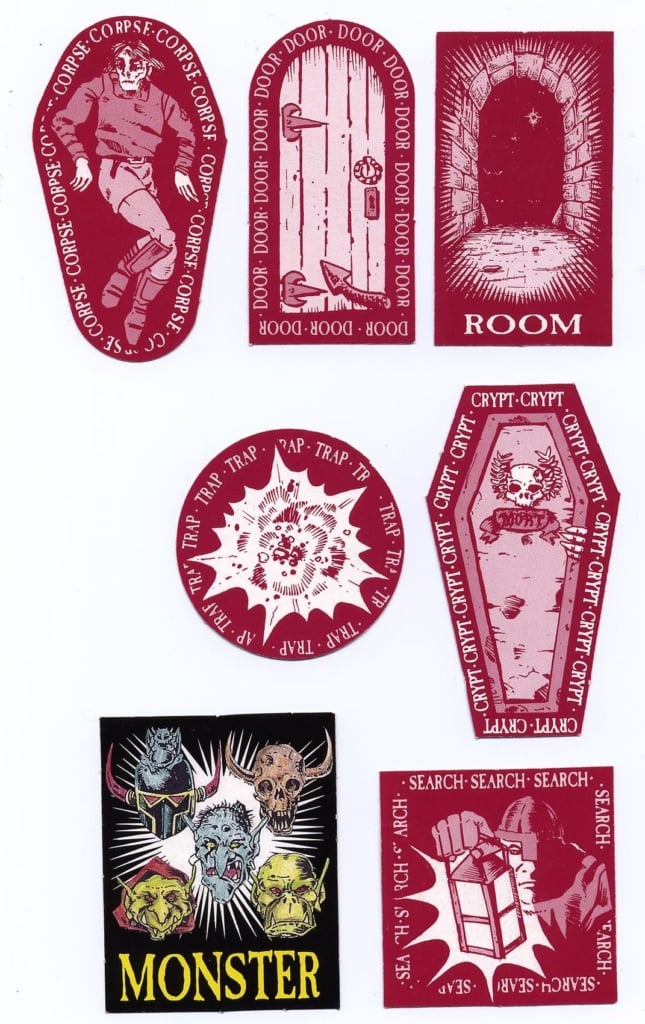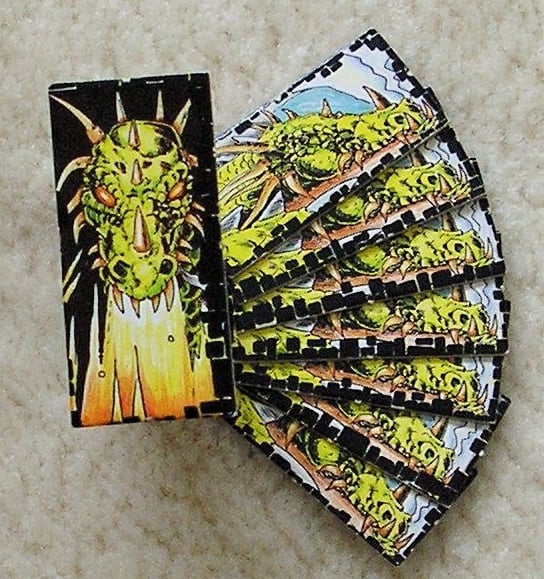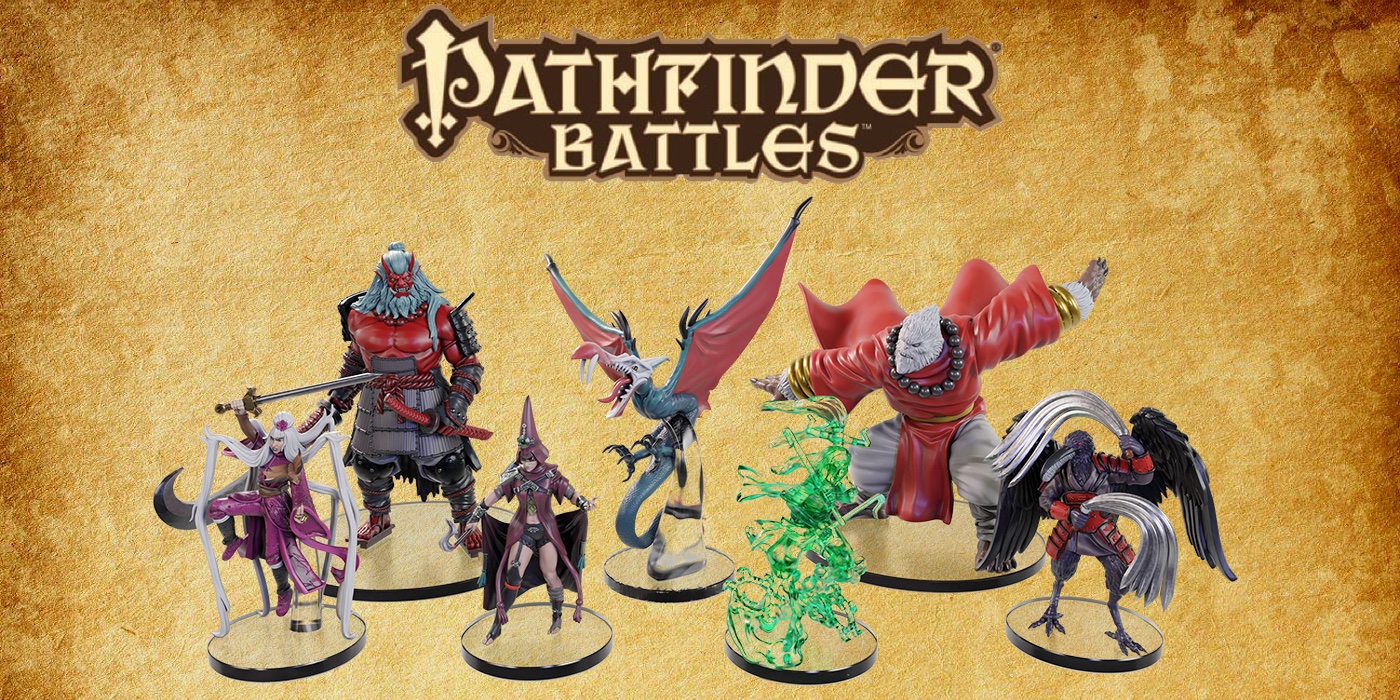Games Workshop’s Classic ‘DungeonQuest’ is Brutally Difficult
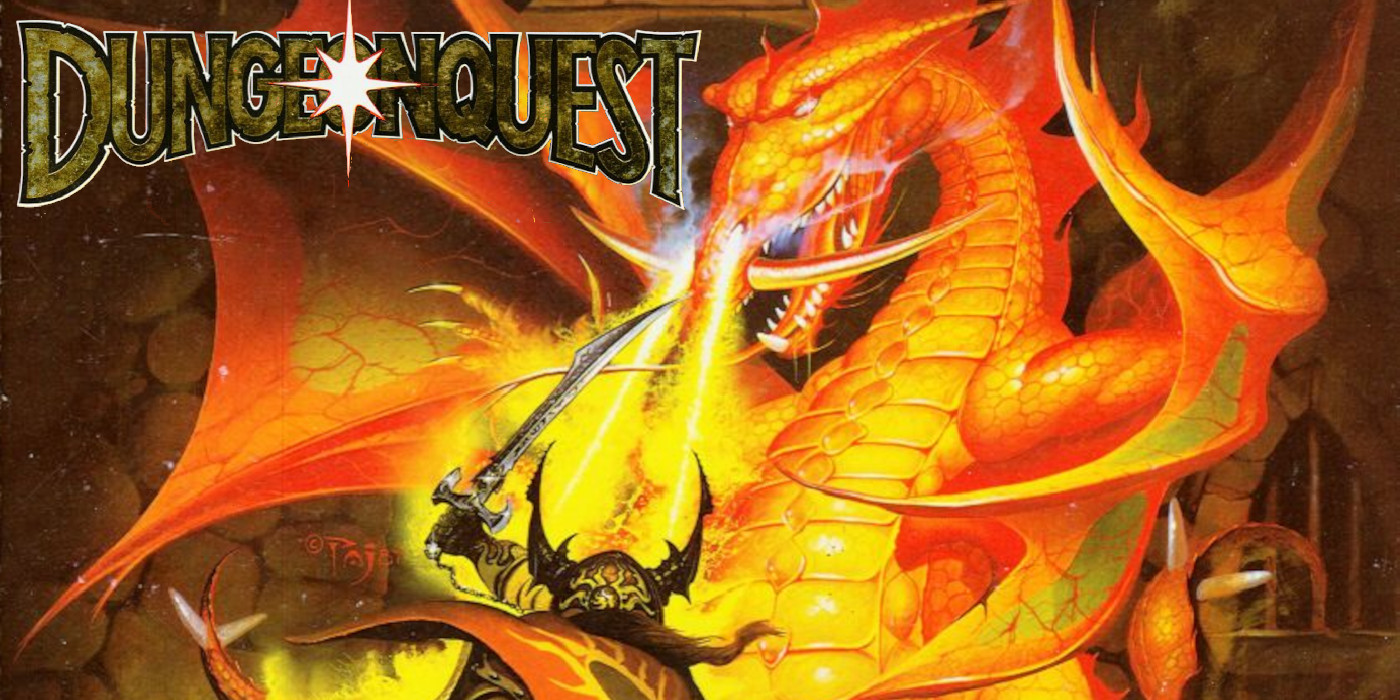

DungeonQuest might not be the best dungeon crawler Games Workshop has produced but it is the most difficult, if that counts for anything.
Games Workshop has released plenty of dungeon-crawling board games. There’s Warhammer Quest: Lost Relics, and even Cursed City, if you were lucky enough to grab a copy. But Games Workshop has been tackling dungeon crawlers for a long time. Fortunately, they’ve gotten more balanced with time.
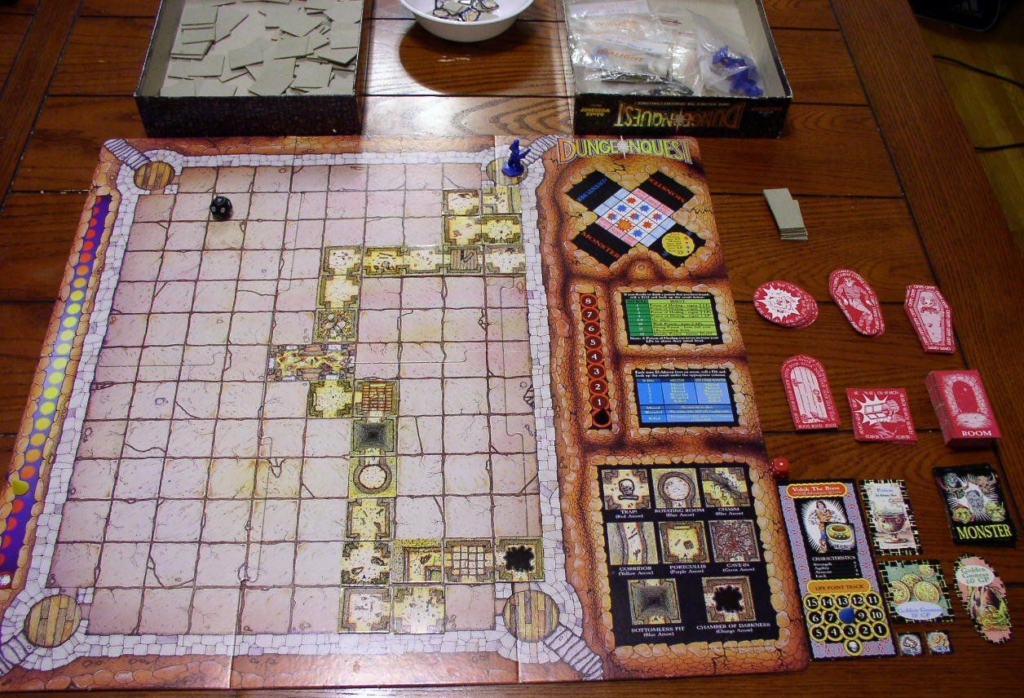
DungeonQuest was originally a Swedish game called Drakborgen before it was handed off to Games Workshop in 1985. It’s your typical competitive dungeon-crawling game with a modular board, but DungeonQuest has a trick up its sleeve: it’s almost impossible to win! Fun!
DungeonQuest Overview
The goal of each player in DungeonQuest is to rush into the dragon’s dungeon, grab some treasure and make it out alive. Whichever player can do all of those things and has the most treasure wins! But it’s that last step of “make it out alive” that’s the problem. The main board of the game is a blank grid and players start in separate corners. As they move into a blank space on the board, they will place a dungeon tile there. The dungeon tiles can be hallways, normal rooms, special rooms, or traps.
Each round, a counter moves forward on the sun track. This represents the amount of daylight left. Once the counter reaches the final space on the sun track, the sun sets and monsters overrun the dungeon killing everyone inside. Any players left in the dungeon die. This is the first of many major hurdles of the game.
As players move through the dungeon they will encounter room tiles. When a room tile is drawn, the player then draws a room card to find out what they encounter in that room. Sometimes the room will be empty, other times they will find a monster. Combat in DungeonQuest uses a rock-paper-scissors style approach, with a results table showing the damage dealt, rather than it being one-hit kills.
In addition to monsters, players can run into traps. Like the bottomless pit trap, which kills the player instantly if they fail a single die roll! Or the rotating room trap which can trap the player permanently and they die! Or maybe you’ll find a secret door, but secret doors are one-way, so you might end up trapped with no way out and die! Sensing a theme yet?
The Real Treasure Was the Gold We Found Along the Way
But suppose you get to the dragon’s hoard, now what? You draw 2 treasure tokens at random. They are usually in the range of a few hundred GP, but maybe you’ll find the 4500 GP token, which is leagues beyond the wealth of any other token! But of course, grabbing treasure isn’t that easy. It is a dragon’s hoard, after all. When a player grabs any treasure, they draw from the dragon token pile. There are 10 of these tokens–9 show the sleepy dragon and 1 shows the dragon awoken.
Each time any player draws a token, it is discarded, so the odds of awakening the dragon increase with time. So don’t be the last player to the hoard. If a player draws the awoken dragon token, they take d12 damage and drop all their treasure. And even the Knight only has 17 health in total. So, considering all the damage they would have taken on the way in, this will almost certainly kill them.
But even with the treasure in hand, the players must escape the dungeon before they can claim victory. With rooms of darkness, torches randomly going out, and portcullis traps all slowing down the player’s progress, getting out before the sun sets is no small feat. But once the sun does set, any surviving players (if any) count up their treasure and whichever player has the most treasure wins!
Final Thoughts
The people who play DungeonQuest love it, and I understand why. It’s not a game you play to win. It’s a game you play for the story. This was released during the era of 1st edition Dungeons & Dragons when it was the players versus the DM and “rocks fall, everyone dies” was a viable play by the DM.
DungeonQuest is not about who wins or loses, but who had the most gloriously entertaining death.

